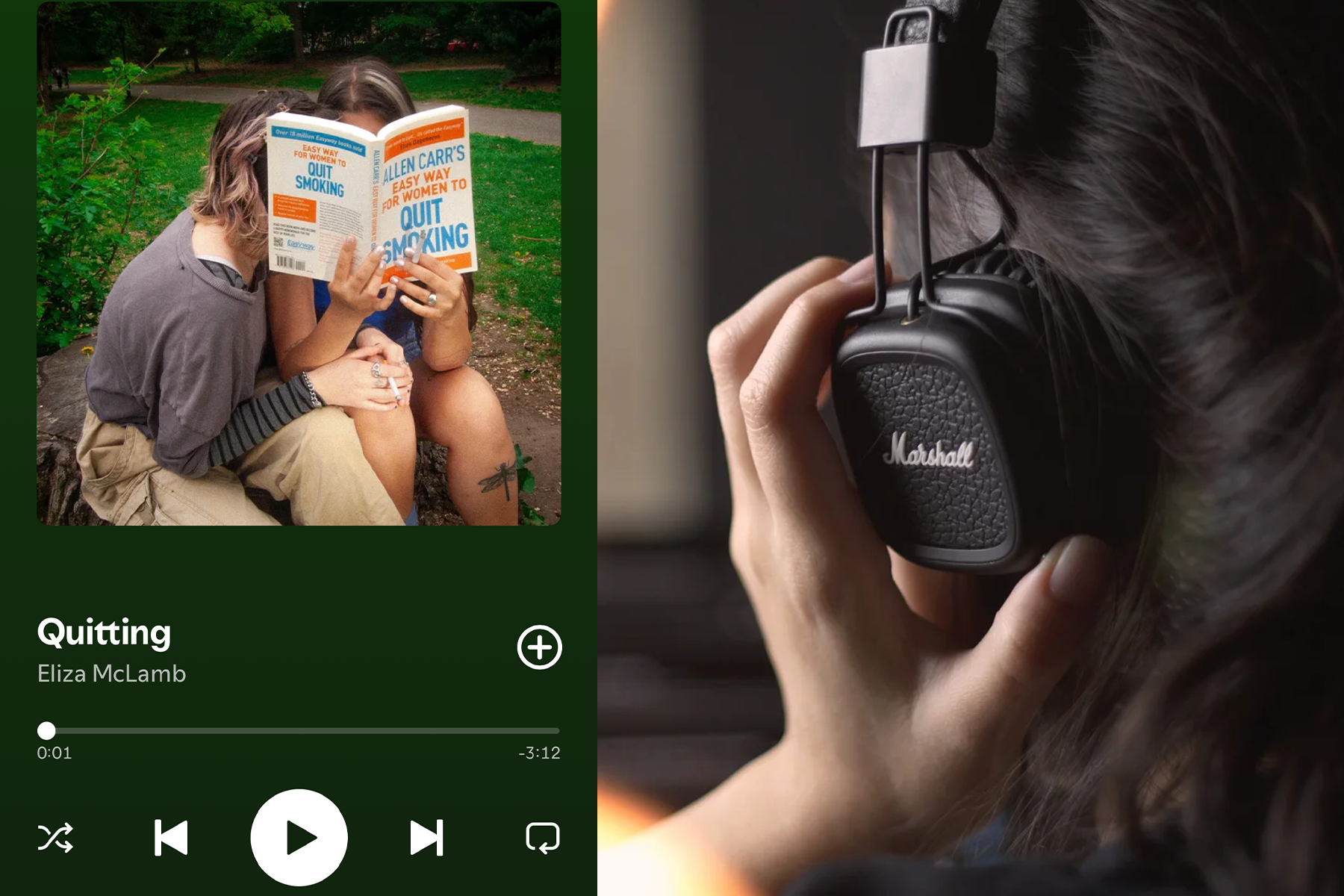4.5/5
This summer, singer-songwriter Eliza Mclamb solidified her abilities as an expert lyrical storyteller in her single “Quitting.”
Hitting streaming services on June 18, “Quitting” was one of two tracks that filled the gap between the release of Mclamb’s freshman album, Going Through It and Good Story, the newest body of work she’ll be debuting this fall. Yet, when the 24-year-old announced the track list for her sophomore album, “Quitting” — which had been released not even a month earlier, was not included. Although this suggests that Mclamb’s summer single will stand alone from her upcoming record, if “Quitting” is anything to go by, Good Story will be just as good as the album that preceded it.
Built around a gritty electric guitar line and a snare-heavy beat, “Quitting” is a tumultuous, fuzzed-out rock song that reeks of the brashness of youth. While the musicality of the track is nothing to stick one’s nose up at, what really sets “Quitting” apart from the other music released this summer is its expert use of narrative lyricism.
Mclamb opens the track with the line “I quit smoking, but I cheated,” a lyric that refers to one of the song’s major themes: Mclamb’s inability to quit things that are not good for her. Throughout the track, the singer utilizes smoking as a foil for her many other bad habits. While “Quitting” isn’t really about the dangers of cigarette addiction, Mclamb uses it as a way to avoid hand-feeding the track’s real meaning to the listener.
“As we have become an increasingly infantilized society, entertained by lights that flash the brightest and narratives that conclude in under 30 seconds, I worry that we are making music for babies,” said Mclamb. In her blog, “Words from Eliza,” the singer shared her belief that as music listeners, we have grown increasingly used to musicians explicitly giving us a song’s meaning by telling us “this is a song for girls with abandonment issues,” or “this is a song for people with gifted kid burnout.”
Mclamb argues that this form of laziness stops people from truly investigating music, instead “[categorizing] yourself, the song, your likelihood of enjoyment and the opportunity to assess the entire piece in a matter of moments.”
While the piece of writing this quote was pulled from was written about the singer’s album Going Through It, her beliefs still hold strong now. “The truth is that audiences are not babies and they resent being treated as such,” concluded Mclamb, who went on to suggest that “the best artists hold a necessary tension with their audience whereby the artist maintains creative control and the fan is given a license to choose how to engage.”
“Quitting,” much like Going Through It, is a clear example of this.
Lyrically, it is clear that Mclamb is singing about a toxic love interest from whom she cannot untangle herself. Yet, what lies under the surface of the carefully crafted prose Mclamb has created is far more interesting. This becomes exceptionally clear when listening to the track’s chorus.
“Wrap me around a streetlight like a teenage car,” Mclamb sings, implying both literally and metaphorically that a level of destructive youthfulness plays a role in her relationship with this person.
Through her words, Mclamb acknowledges the reality of youth, expressing a lack of consideration for the consequences of her actions and choosing to make bad decisions rather than doing what is best for herself and all other parties involved.
Metaphorically, Mclamb is the “teenage car”. By asking her love interest to wrap her around a streetlight, she demonstrates a complete lack of self-preservation. She knows this relationship is dangerous, yet she encourages these damaging acts because she cares more about feeling connected to this person rather than her own physical and emotional safety.
Mclamb goes on to encourage her love interest to “Bet on [her] at the big fight,” suggesting that she intends to win the internal battle she is fighting with herself. While she knows this relationship is bad for her, she desperately wants to see a future with this person, so she will fight until she “wins” this desired reality. This belief is further expressed by Mclamb’s suggestion that she won’t break her love interest’s heart, showcasing that she believes she will champion their love.
The chorus ends much like the song does, with the lyrics “Quitting’s so easy / But quitting you, that’s hard.” These lyrics are arguably the track’s most important. The word “quitting” implies a level of finality, a conclusion to a series of actions that she was once addicted to. Yet, earlier in the song, Mclamb states that “Quitting’s so easy, [she’s] done it a million times”. It is clear that Mclamb does not see quitting as truly conclusive but rather as a concept she can continually revisit by “quitting” again. This takes the difficulty out of the act of quitting and makes it an “easy” task. Yet, the implication that quitting her lover is hard for McLamb suggests that she can’t fathom untangling herself from this person for even a brief moment.
She is simply in too deep and there is no escape from this never-ending cycle of toxicity.
While “Quitting” might sound like an upbeat rock track full of catchy hooks and relatable, surface-level lyrics, this is not the case. As is McLamb’s tradition, this track is emotionally thoughtful and lyrically impressive, suggesting an immense level of skill. McLamb showcases a level of intimacy with her inner self that many other modern musicians lack, making her one of the best of this generation.

